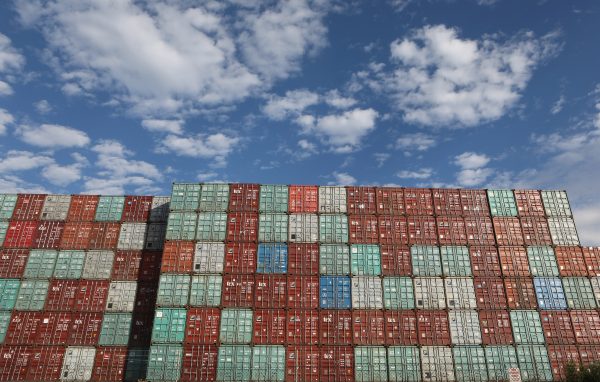In the most recent 2023–24 budget, the STS Implementation Taskforce, Australian Border Force (ABF), Department of Agriculture, Fisheries and Forestry (DAFF) and Australian Taxation Office received funding to continue their work on the program. But progress has been slow, with the efforts of the past three years producing little practical outcome. The STS continues to be seen as a work in progress.
The need for regulatory improvement in the trade environment was highlighted in a recent address by the ABF Commissioner, who declared that Australia’s international trade regulations are too complex for businesses — especially small to medium enterprises — to thrive. He pointed to the 200-plus regulations, 145 systems and 29 federal and state agencies that cost Australia about AU$431 million (US$287 million) a year in information duplication alone. He also noted that, according to the World Bank, Australia’s ‘Trading across Borders’ ranking fell from 25th to 106th over the last 10 years.
The STS Implementation Taskforce is progressing the reform program in partnership with the ABF, DAFF and 30 other government agencies under a mandate to guide and coordinate rather than control. A central feature of the process to date has been industry consultation through a series of workshops, roundtables, public forums and bilateral engagements.
The latest STS consultation paper outlines a number of policy options that have been developed following extensive public consultation. The document proposes best-practice regulatory principles to develop whole-of-government policy frameworks that embrace technology and automation. By simplifying rules and procedures, the administrative burden on businesses would be reduced. But unfortunately, the options proposed are more akin to principles and are somewhat platitudinal in nature. While much work has been undertaken, it is unclear how the underlying conceptual ambitions of the STS are to be achieved, or what the future trade system might look like.
Missing within the STS agenda is a single body with overall responsibility for bringing together new ways of working and the requisite technologies needed to establish an effective new trade system. While Australia may be adopting a holistic approach, there is not yet a whole-of-government taskmaster with the authority to coordinate, direct and manage this important piece of work. As it stands, the STS Implementation Taskforce is simply a short-term appointment with limited powers and an uncertain future.
It is worth noting that industry engagement with STS developments has been occurring under the National Committee on Trade Facilitation (NCTF). The NCTF facilitates the domestic coordination and implementation of the World Trade Organization’s Trade Facilitation Agreement provisions, which positions it as Australia’s principal consultative forum on trade facilitation. The Committee is chaired by the ABF, but an industry-sponsored review of the NCTF’s operation opined that it may be inappropriate to vest such responsibility in one of the key operational agencies involved.
The STS Implementation Taskforce appears to be an obvious candidate for the NCTF leadership role. The Taskforce’s high level of engagement with NCTF members since its inception suggests that an appointment may well serve to overcome the current STS inertia, but not unless it is granted the requisite authority and permanency to fulfil such a role. Having greater influence over Australia’s trade reform program should in no way detract from the important initiatives being pursued by the ABF and DAFF, but should rather provide a greater degree of context and coordination.
Both the ABF and DAFF are currently faced with an urgent need to replace their legacy systems that are well past their best-before date and fast approaching their use-by date. The development of any new systems must be properly coordinated for Australia to achieve its STS ambitions, particularly the introduction of a Trade Single Window. But work on future systems has already begun. The ABF is seeking to uplift the current capability of its Integrated Cargo System within the context of the STS agenda and DAFF is working to replace its legacy systems, including developing its proposed Simplified Targeting and Enhanced Processing System with significant funding from the May 2023 budget.
With improved governance arrangements in place, Australia has the potential to introduce a truly globally competitive trade system that incorporates modern technologies and ways of working — and one that enables Australia to meet its international obligations under the WTO Trade Facilitation Agreement. While such an achievement is something that should be promoted domestically and in international fora, its credibility will depend on the government’s ability to make genuine progress, pointing to the achievement of effective and efficient operating systems rather than aspirational goals.
Only time will tell whether the Taskforce will achieve its objectives. The clock is still ticking.
David Widdowson is Chief Executive Officer of the Centre for Customs and Excise Studies and Professor at Charles Sturt University.

